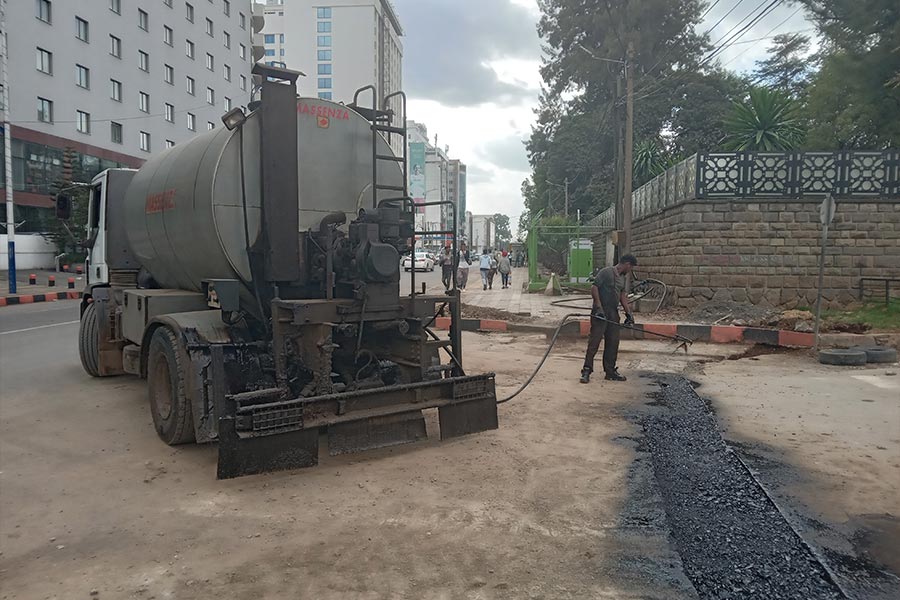
A road around Cassanchis area receives a quick fix as renovation projects ramp up across the capital. Despite the rarity of cement in the country and inflationary headwinds, road renovations have progressed unimpeded in most parts of Addis Abeba. Nocturnal construction workers are increasingly becoming a staple of the night as the capital's road authority juggles increasing vehicle numbers and limited infrastructure. The Ministry of Transport & Logistics has recently signalled a possible restriction on private automobiles allowed to operate during rush hours in a bid to increase public transport traffic flow. Even though Ethiopia only has around 1.5 million vehicles roaming the country, an underdeveloped road infrastructure gives the appearance of being overburdened by cars.
[ssba-buttons]